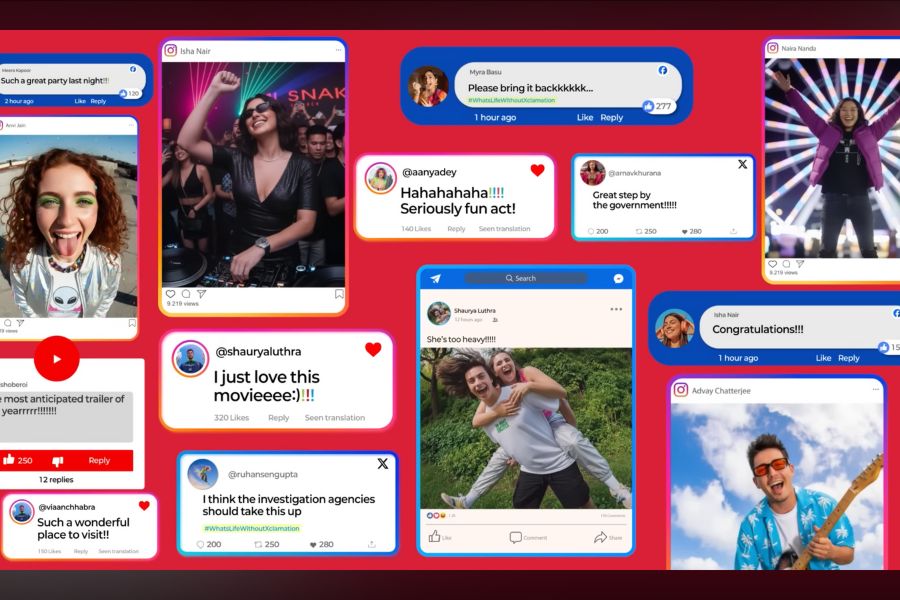In May 2021, the Advertising Standards Council of India (ASCI) officially launched the influencer marketing guidelines for ‘consumers to distinguish between something that is promoted with an intention to influence consumers' opinion or behaviour for an immediate or commercial gain’. The guidelines laid down ways in which influencers needed to be more transparent – with clearly outlined disclaimer labels in their content – to avoid misleading consumers.
It’s interesting to note that the guidelines have come at a time when the Covid-19 pandemic has spurred on the influencer marketing industry. A recent study by ClanConnect.ai observed how 50% of marketers are slated to increase influencer marketing spends in 2021. Further, it speaks of how almost 58% of CMOs have allocated separate budgets for influencer activities in their 2021 marketing plans, while 52.17% have decided to increase spends in 2021, as compared to 2020
In light of this, Campaign India spoke to industry experts –stakeholders in the influencer marketing industry – to understand their perspective on ASCI’s guidelines one month in.
Compliance
Manisha Kapoor, secretary-general, ASCI, says that the response to the guidelines has been ‘overwhelmingly supportive’. Seeing as the document was created with inputs from all stakeholders – advertisers, talent management agencies, and influencers, to name a few – during the draft stage, she says there were no surprises at the time of the final launch.
“Several influencers have already begun complying with the guidelines. Even talent management agencies and advertisers have been issuing very clear instructions to influencers, ensuring the guidelines are met,” she shares. Kapoor also says that barring one or two instances, any influencers found to be violating guidelines, whether advertently or inadvertently, have made changes to their content in less than an hour after ASCI brought it to their notice.
Madan Gowri, an influencer from South India (with over one million followers) and the founder of news app Kokru, is welcoming of ASCI’s guidelines. A firm believer of transparency in content creation, he says “I have always been following and working with brands to be ethically and morally right from our end. The new guidelines have now made it an industry standard.”
Engagement
Influencers’ popularity relies on follower and subscriber counts; it’s these factors that have a bearing on their engagement numbers. Needless to say, engagement is one of the most important metrics for teams at digital agencies, who often conceptualise and execute influencer marketing campaigns on behalf of brands.
Aalap Desai, national creative director, Isobar India, elaborates on how the guidelines have made the engagement for Category-C influencers (content creators with followers less than two lakh) a bit complicated. He says, “Consumers have matured in consuming content which the big influencers put up; they can easily differentiate between paid and unpaid promotions. Life hasn’t changed much there. The challenge, however, is with the influencers in Category-C. They have a smaller halo. Earlier, the authenticity amongst their small number of followers was decent. Them announcing that posts are paid promotions dials down the authenticity.”
On the other hand, the introduction of the guidelines hasn’t changed much for Urban Company, a brand that engages influencers heavily to market its gamut of services. Tarun Menon, director, marketing, says that the brand always believed in a transparent approach when it came to influencer activity.
“We have always had our logos, tags, hashtags as well as ‘paid partnership’ tags in 90% of our influencer content, so ASCI’s guidelines are no different from our ways of working,” Menon reveals. Since some of the influencers the brand works with even helped draft the guidelines, he doesn’t believe that there has been a ‘throttling’ of brands and influencers’ creativity.
Gowri, too, denies seeing any change in engagement since adding the disclaimers outlined in ASCI’s guidelines. “People encourage the guidelines as it's for the better understanding of the product. They also help the creator make sure an integration remains an integration, and not the content itself,” he says.
The long-term view
Guidelines for a dynamic industry like influencer marketing will always need to be amended as the practice evolves. Kapoor believes this is an ongoing process.
She explains, “None of ASCI’s guidelines can operate in a static environment. Consumers are bound to take some claims more literally today than they did pre-Covid. Take germ protection, for instance; consumers become hypersensitive to claims around it and expect the product’s performance to be at a certain level. Thus, the guidelines need to reflect what is changing in society and on digital platforms.” She believes all of these factors fit into ASCI’s larger agenda: consumer protection.
When it comes to taking a long-term view, Menon feels the guidelines will make the approach to content creation more native to platforms. “Once a viewer knows that content is sponsored, it has to be extremely relevant to keep viewers engaged,” he says. Further, he believes that the brand’s engagement, goals or metrics won’t be affected in the future, as long as it doubles down on the nature of collaborative content produced.
The guidelines have made creative communication a bit of a challenge. Desai says “Sometimes, the creativity in using influencers was all about making it sound as authentic as it could be. Now that’s not an option anymore. With the paid promotion tag, we can no longer explore those avenues.”
However, he is positive that agencies “will find a way around this like we always do” in the long run.
Amen to that.




